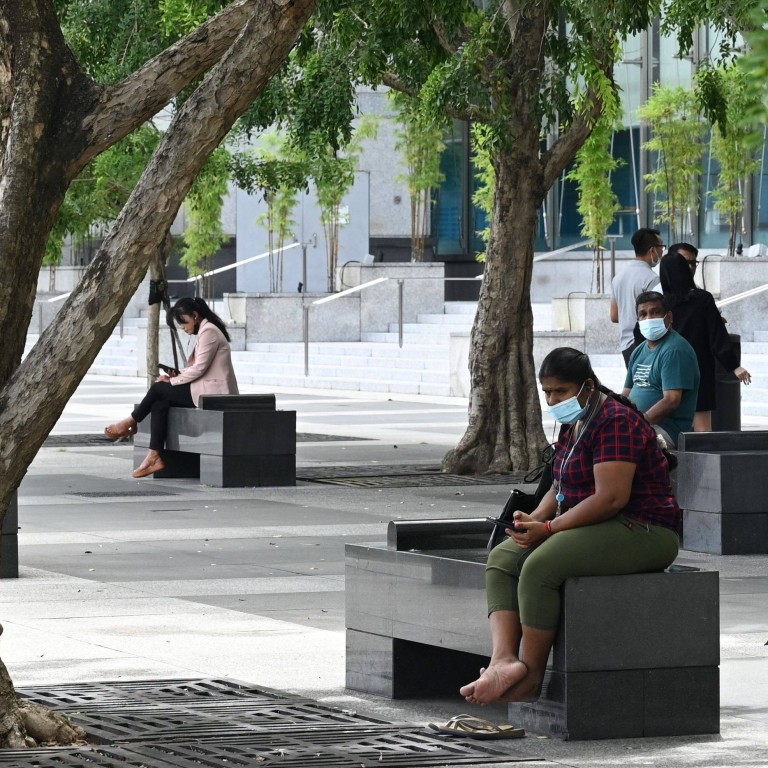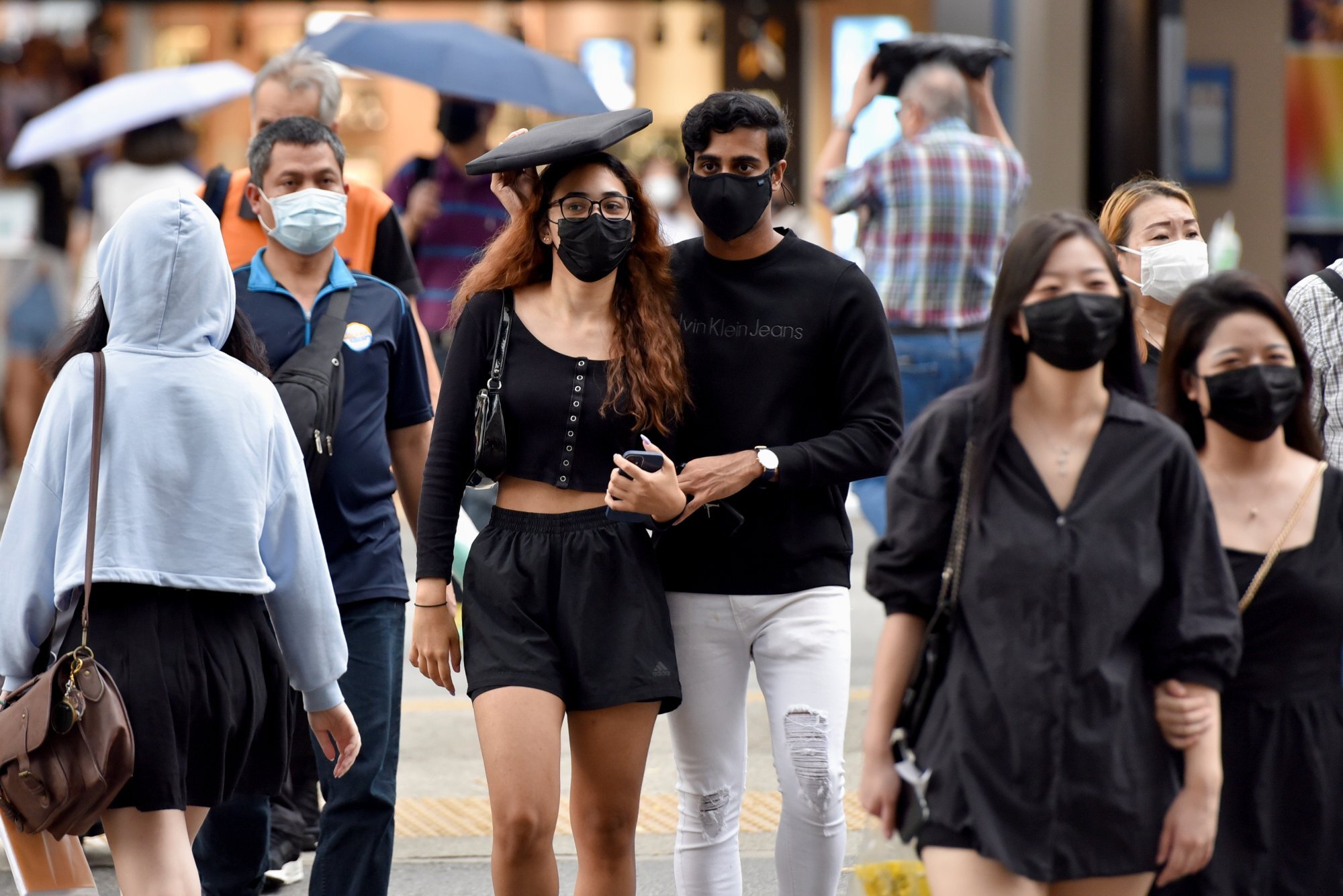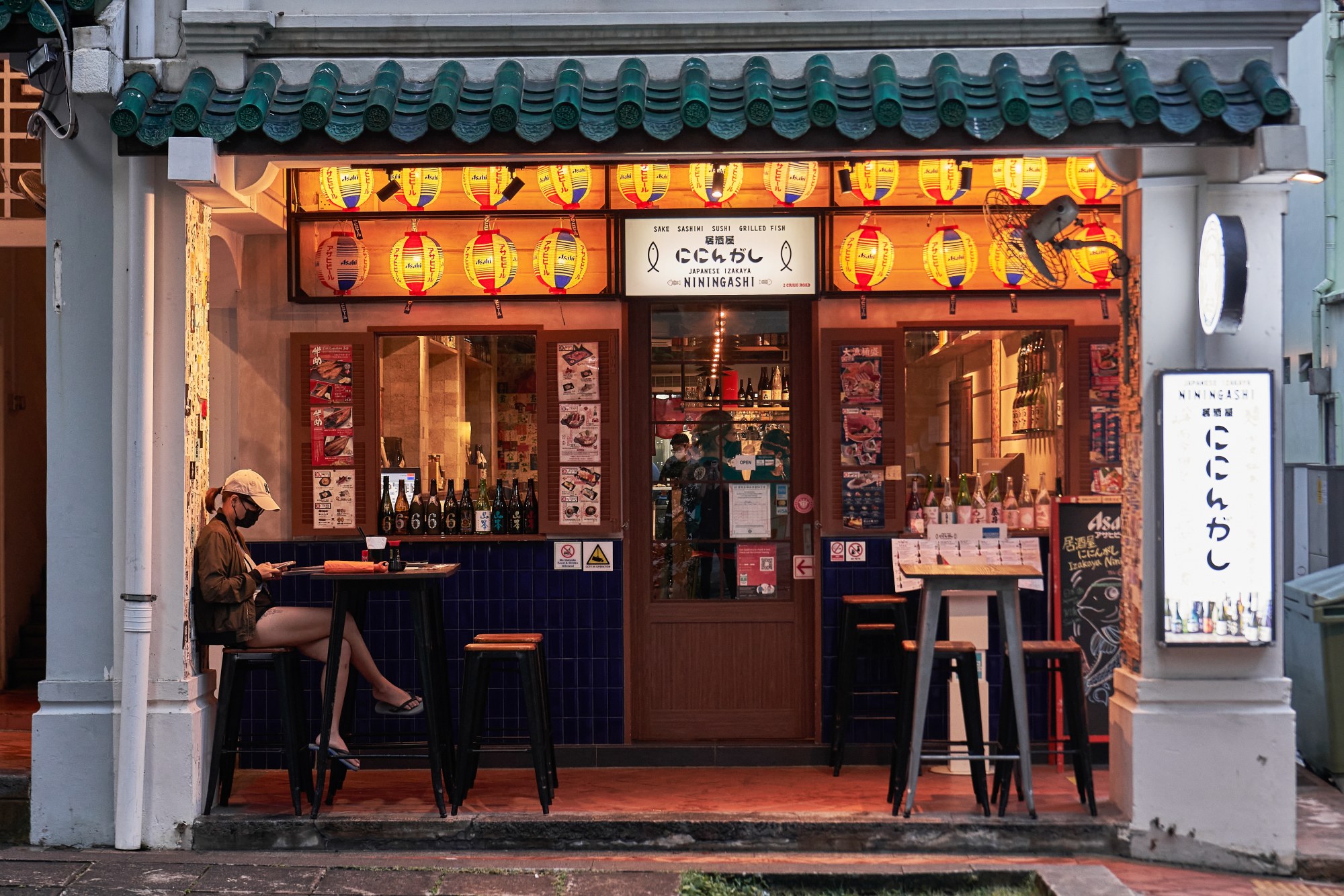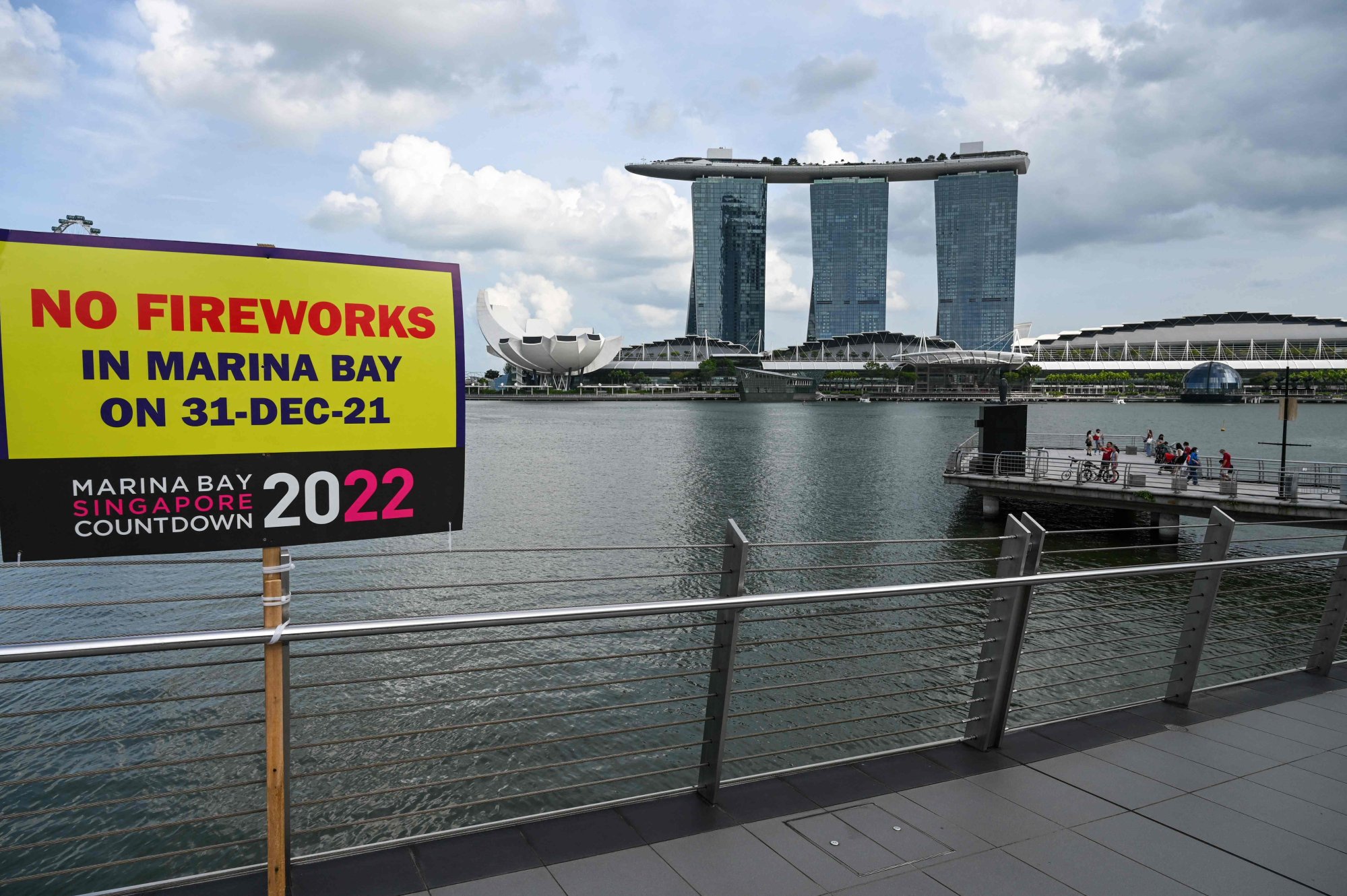
Singapore in talks with US after CDC description of Covid situation as ‘unknown’ baffles experts
- The Centres for Disease Control and Prevention urged Americans against travel to the city state, despite it having just a fraction of the cases reported in the US
- Singapore will require residents to get boosters to be considered fully-vaccinated but won’t close borders as it gears up to face an imminent wave of Omicron infections
This is not the first time the CDC has bewildered experts – last September it admitted it had made an error when it raised the Covid-risk level for Hong Kong from ‘low’ to ‘moderate’.
Singapore’s Health Minister Ong Ye Kung told reporters on Wednesday that the CDC was unaware of Singapore’s surveillance test numbers, noting that some 150,000 polymerase chain reaction tests were administered every week.

Singapore also has waste water testing stations across the island, in housing estates, foreign worker dormitories and in nursing homes. “Just to be clear, we know our situation very well,” he added. The health ministry was providing American authorities with the “necessary data”, he said.
The CDC, in an email to Bloomberg, said the change stemmed from a lack of testing data that the CDC used to get from the aggregator Our World in Data. That information had not been updated since November 8, it said.
Singapore has one of the world’s highest vaccination rates – close to 90 per cent of its population has received two doses while 42 per cent has received a third shot. It has also recently begun inoculating children between the ages of 9 and 11. Hospitalisations among those who are ill – it has been reporting several hundred cases a day, mostly imported infections – remain low.
Yet the CDC’s classification essentially places Singapore in the same bracket as Afghanistan, North Korea and Syria, as well as island nations in the Pacific that do not have the infrastructure to report their Covid-19 data.

Meanwhile, Singapore on Wednesday announced it would consider individuals fully vaccinated only if they had received a booster Covid-19 shot, stressing the importance of these to tackle an imminent wave of Omicron infections.
Ong said residents’ vaccination status would expire 270 days after they had taken their last dose, starting February 14.
This means that until then, residents who have taken two doses of the mRNA vaccine – Pfizer or BioNTech – or three doses of the Sinovac or Sinopharm vaccines would be considered fully vaccinated, regardless of their date of inoculation.
Singapore to serve as aviation hub during Beijing Winter Olympics
But on February 14, individuals who have taken their jabs before May 20 – from when 270 days or nine months will have passed – will have their vaccination status reset. They will be required to take a booster shot to retain their status, which could affect their access to venues including malls and restaurants.
Vaccinated people who have recovered from the virus will not require a booster dose at this point.
Ong said international data had shown that two doses of vaccine gave weaker protection against Omicron than the Delta variant. Boosters, he said, would restore protection against infection and serious illnesses from the Omicron variant, which is thought to be more transmissible but less severe.

“I urge all eligible individuals to take your boosters promptly,” he said.
While the virus situation remains stable, the number of Omicron cases in Singapore has crept up in recent weeks, now making up about 18 per cent of cases. Over the past week, there were 1,281 confirmed cases linked to the Omicron variant, of which 1,048 were imported.
Finance Minister Lawrence Wong, who co-heads a government virus task force, said there would be no relaxation of Covid-19 measures. He reiterated that rules could be tightened if the health care system were overwhelmed.
Asked if Singapore had plans to tighten its border measures as most Omicron cases were imported, Wong said the focus had shifted beyond the borders given that there was already community transmission of the new variant.
Ong added that imposing harsher rules and shutting its travel lanes could affect Singapore’s reputation and might not improve the situation. “Because today is Country A, tomorrow is Country B in Europe and then the US … and before you know it, if you take that approach, you are back to closing down your borders,” he said. “And what [would have] happened is that we have gone back two years.”

